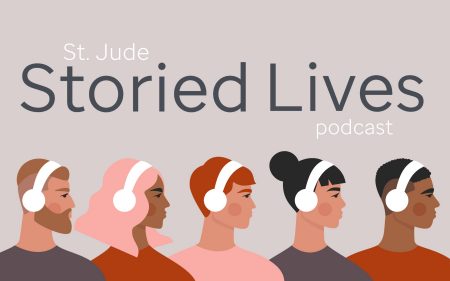
Grandmother’s commitment to St. Jude extends to the next generation
A desire to support sickle cell disease research fueled Laura Jackson to donate to the mission and then encourage her granddaughter, too.

November 17, 2023 • 3 min

Laura Jackson is a community activist, and a giver by nature.
Her grandmother laid the foundation for her efforts. Jackson also admired people who created change when she was growing up, whether it was as part of the Civil Rights movement or grassroots movements during her college years.
“If you believe in something, you should do it,” she said.
That motto also brought her to St. Jude Children's Research Hospital®, inspired by its mission: Finding cures. Saving children.®
She started supporting the research hospital more than five years ago with periodic donations and then became a regular donor. “But the thing that really turned me to do something in a different way [as a donor] was the pandemic.”
During the COVID-19 pandemic, Jackson spent hours at home, listening to different virtual classes. In one room, her daughter Markia, a schoolteacher, was presenting lessons to her students. In another, her granddaughter MaKayla, 11, was on the receiving end of distance learning.
Since she was very interested in teaching young people, she started with her granddaughter’s class, talking to middle schoolers about investing and philanthropy. But it was in her daughter’s classroom that a child caught her attention.
“She had a student that had sickle cell disease, and she would be in class every day, even when she was getting blood transfusions, and I was so impressed with that and her determination.”
Jackson knew that St. Jude had a deep and longstanding commitment to children with this group of blood disorders. In fact, the hospital’s scientists have been researching it since the institution opened in 1962.

“Since I was already teaching my granddaughter about investing and generational wealth, we came up with the idea of making a donation and really seeing the compound interest and how you can help a lot of people,” Jackson said. She hoped that if MaKayla learned how to give at a young age, just like herself, she would give forever.
They decided to make a 12-year financial commitment to St. Jude, so MaKayla would honor it through college and beyond.
“Generational wealth is not just money, but it's wealth in your health, it’s wealth in your giving, in your spirit… It's just holistic. And if you learn that when you have a little bit of money, you will never have a problem with giving.”
Earlier this year, Jackson visited St. Jude and met some of the parents and patients who explained how they’ve never received a bill from St. Jude for treatment, travel, housing or food — so they can focus on helping their child live.
“At St. Jude, they just give it all and you see the results. You actually see what they do, the people that they are serving, and you can hear their stories, their testimonies, and that touches you because what comes from the heart reaches the heart," Jackson said.
Support for sickle cell disease research
Their long-term donations would mainly benefit the campaign that honors Dr. Rudolph Jackson and be part of a mission that is rooted in health equity and inclusion. Dr. Jackson was one of the first Black doctors at St. Jude and a groundbreaking figure in the treatment of sickle cell, childhood cancer, solid tumors, and other life-threatening diseases.
Sickle cell disease is inherited and can occur in all races but is most common in African Americans and Hispanics. About one out of every 365 African American babies born in the US has sickle cell disease.

While she was in college, Jackson said, her African American peers were very concerned about sickle cell disease and how it might affect them or those they loved. They would see people around them extremely sick because of lack of treatment.
“We didn’t know what it was, but we were getting tested,” she said.
Jackson said she likes that the advances made at St. Jude in treating sickle cell disease are shared throughout the world.
“St. Jude is making movements and helping not only people here in the United States, but also sharing all the research with other countries that have high rates,” she said.
Jackson began a significant commitment to St. Jude in 2020 and has also participated in different fundraising events such as the Washington, D.C.'s 104.1 Praise Radiothon, St. Jude Celebration of Hope and the St. Jude Call to Service event that is held during the Congressional Black Caucus Conference.
The majority of St. Jude funding comes from generous donors. When donors support St. Jude, they can help make cures possible for kids with cancer and other life-threatening diseases because patients receive the customized care they need, no matter what barriers they may face.
“I’ve always been very impressed with St. Jude because of how they came about in very segregated times, and they never turned anyone back because of their race, so it’s always been about healing, and I’ve always loved that.”








